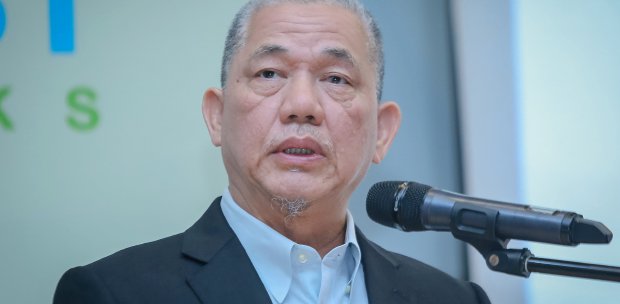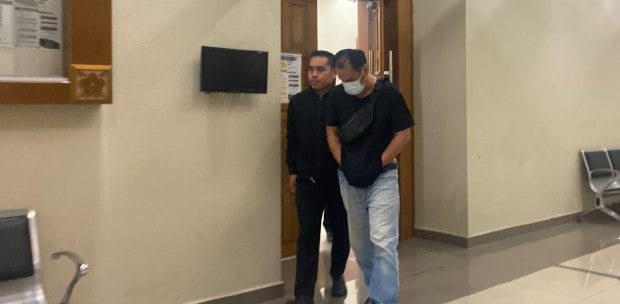KUALA LUMPUR: The lure of “easy money” offered by organised crime syndicates to entice enforcement agencies is threatening the country’s security and sovereignty.
And. the scenario is no different when tackling the scourge of Vietnamese trawlers that poach on Malaysia’s bountiful fish in the South China Sea.
Maritime Institute of Malaysia senior fellow and maritime security and diplomacy head Captain (Rtd) Martin A. Sebastian said enforcement officers were the main targets.
“While there are many patriotic and honest officers who work diligently, there are still many ‘dirty uniforms’ out there,” he warned.
To demonstrate such vulnerabilities, he cited the case of two Malaysian Maritime Enforcement Agency (MMEA) senior officers — one a lieutenant commander and the other a commander — who were reportedly charged for accepting bribes from the tekong of Vietnamese trawlers last year.
“And local syndicates have rented out the licences and vessels of local fishermen to the Vietnamese for their ‘fish laundering’ activities,” said Sebastian.
The United Nations Office on Drugs and Crime (UNODC) reported that organised crime in East Asia was worth US$90 billion (about RM378 billion), annually.
Sebastian, a retired Royal Malaysian Navy officer, said he had learnt this during his operational days when commanding the nation’s naval stations surrounding the disputed Spratlys archipelago.
“Due to a plethora of implications caused by organised crime syndicates, there is a need for enforcement agencies to be more organised than them.
“Land and sea enforcement agencies must work together to share information.
“However, information will not be shared if the cancer of corruption is not addressed first,” he said.
Sebastian added that one way to counter corruption was to keep close tabs on the lifestyles and banking accounts of enforcement officers.
“Officers found to have amassed funds illegally should be dealt with under the Anti-Money Laundering, Anti-Terrorism Financing and Proceeds of Unlawful Activities Act 2001.
“Their assets should be frozen and confiscated.
“They should be named and shamed to deter others from doing the same.”
He warned that illegal fishing could be connected to other organised crimes such as piracy, kidnapping for ransom and smuggling or trafficking.
Sebastian said such crimes were disguised as legitimate businesses in the “shadow economy”.
“These crime syndicates operate with no boundaries and their multi-billion ringgit businesses span national, regional and global arenas.
“They have a land and sea nexus which can supply to meet the demand for anything that uses the sea as a medium for trade transshipments,” he said.
Such shadow businesses, he said, implicated nations as they suffered billions of dollars lost in resources, revenue and payments.
Malaysia itself is a fine example, losing RM6 billion annually to illegal fishing activities by foreigners.
“Likewise, gangs that kidnap for ransom, charge millions for releasing their prisoners and this risk has raised insurance premiums and thwarted many investors.
“Undeclared and under-declared taxable items smuggled into and out of Malaysia have revenue implications.
“Smuggling of wildlife has not only depleted many exotic species but made diseases become pandemic,” said Sebastian, adding that the government had to spend millions of ringgit taking remedial measures.
Contraband goods and drug trafficking could affect the public’s health and “paralyse” a nation, he cautioned.
Sebastian called for a more concerted and coordinated enforcement by the various agencies to ensure organised crime syndicates were busted for good.
“If their shadow businesses are disrupted and are loss-making, crime syndicates will find it hard to operate, especially when proceeds from one business feeds another.
“This is imperative as ill-gotten gains can easily penetrate enforcement agencies and even the judiciary,” said Martin.
He welcomed the establishment of the multi-agency task force under Op Naga to address the Vietnamese illegal fishing issue.
He said he hoped the agencies could synergise their efforts without duplicating operations at overlapping areas of responsibilities.
“The idea is to form an equilibrium to enhance team work, with sharing of resources, information and intelligence.
“This will result in cost savings and increased value, by addressing scarce resources and the duplication of efforts.
“There is also a need to look at jurisdiction gaps and overlapping jurisdiction to safeguard national maritime interests,” he said.






